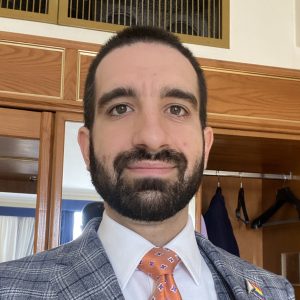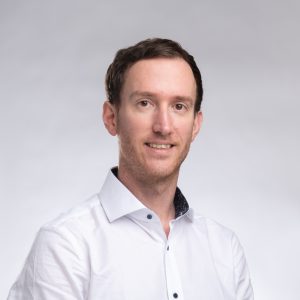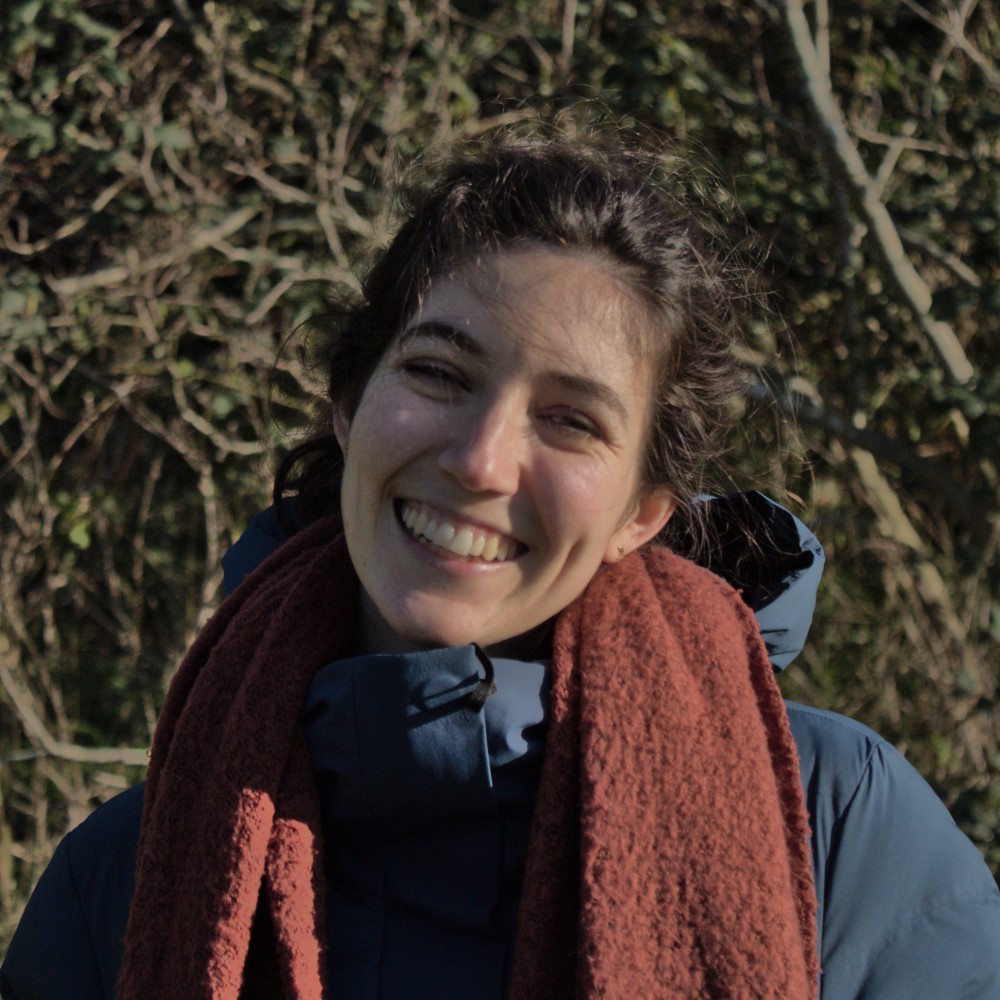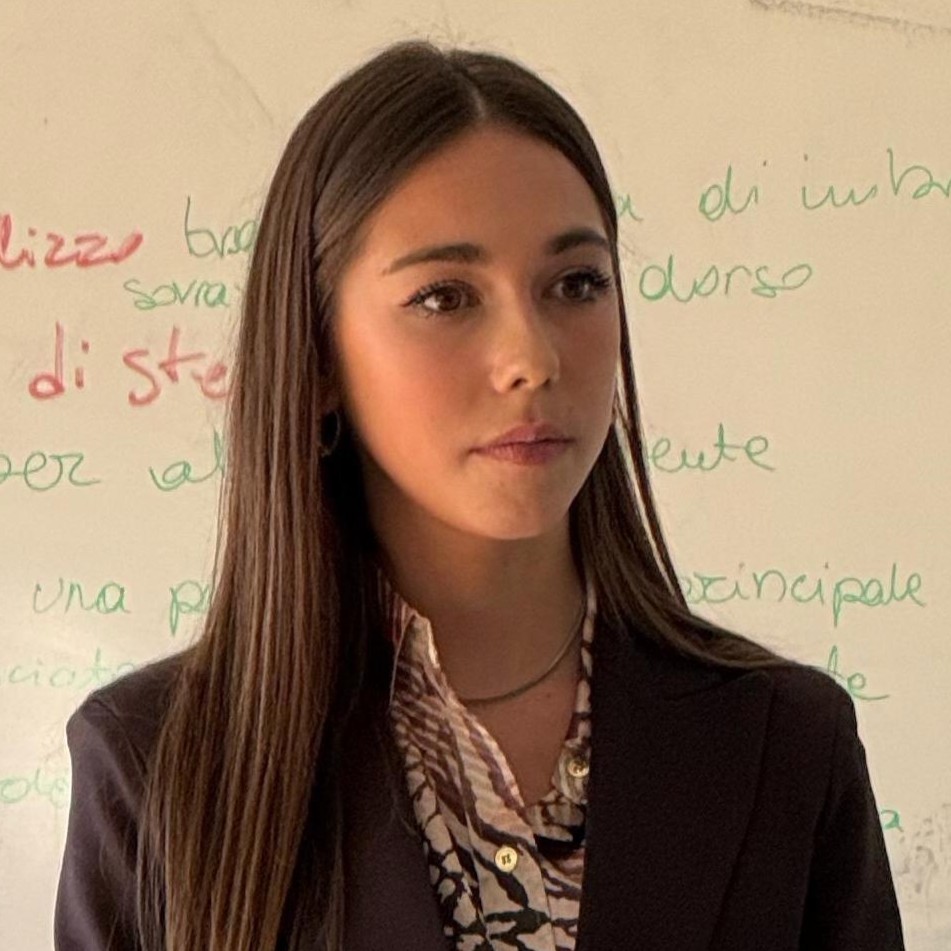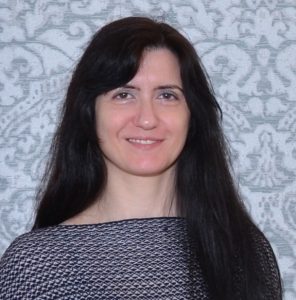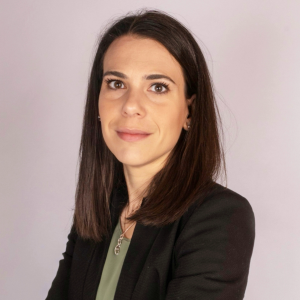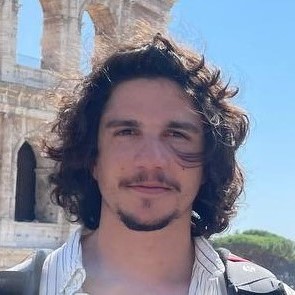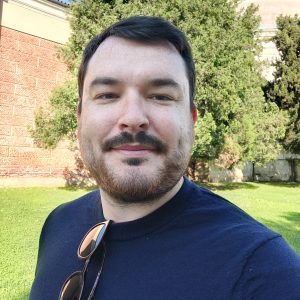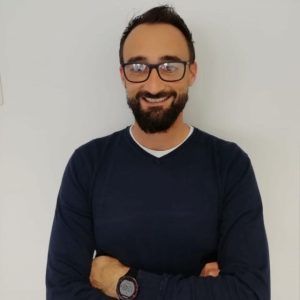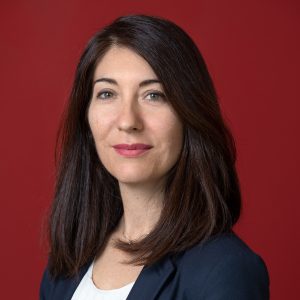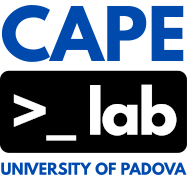Alumni
Dr. Elia Arnese Feffin
Postdoctoral Associate ‒ Massachusetts Institute of Technology, Dpt. of Chemical Engineering, Cambridge, MA, USA
I am a Post-Doc at MIT, researching on ways to merge prior process knowledge and information that can be extracted from process data by data-driven modeling. I have carried out research for my PhD at CAPE-lab, where I had the chance to work on real industrial processes and data. My time at CAPE-Lab helped me understanding the theoretical foundations of data analytics methods and getting invaluable insight on the application of such methods to real-world scenarios.
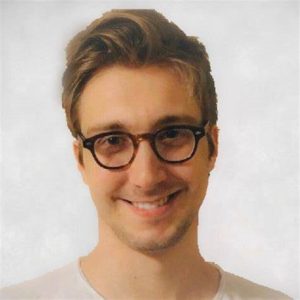
Dr. Gabriele Bano
Head of Process Modelling ‒ Sanofi, Global CMC Development, Framingham, MA, USA
In my role as Head of Process Modelling in Sanofi I lead a global team of process modelers and data scientists across three different countries (France, Germany, USA) to support a wide portfolio of biopharmaceuticals addressing a range of therapeutic areas such as immunology, oncology and rare diseases. My team is responsible for the implementation of advanced modelling techniques to accelerate the development, scale-up and commercialization of the manufacturing processes used to manufacture these medicines at scale.
The education, experience and international exposure I have gained during my time at CAPE-Lab have been pivotal to support my career development within the pharmaceutical industry and have provided me with a differentiated skillset that has made me competitive in a dynamic international environment. Attention to details, solid chemical engineering fundamentals, international mindset and “out-of-the-box” thinking are just a few of the skills that I have developed during my time at CAPE-Lab and that have contributed to shaping my professional profile.
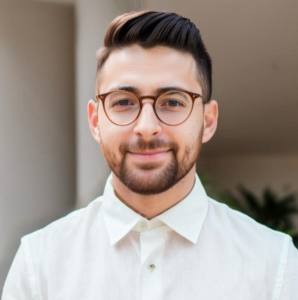
Mr. Antonio Benedetti
Co-Founder & CEO ‒ PolyModels Hub, London, UK
After more than six years at a leading global pharmaceutical organisation, I founded PolyModels Hub, a venture-backed startup dedicated to accelerating pharmaceutical process development through an innovative model-based approach and platform. Our vision is to combine cutting-edge technology with groundbreaking science in process and systems modelling to deliver significant value to pharmaceutical product portfolios and bring medicines to patients faster.
CAPE-Lab had a profound impact on my career. During my MSc thesis, I gained foundational knowledge in data science and modelling and had the opportunity to challenge myself in an international environment. Since then, I have had the pleasure of collaborating closely as an industrial partner with Pierantonio, Max, and Fabrizio on various research and collaboration projects. I have always admired their pragmatism, scientific rigour, problem-solving skills, and commitment to quality execution, combined with an exceptional focus on academic education and the application of the research method.
Dr. Andrea Bernardi
Research Fellow ‒ Sargent Centre of Process Systems Engineering, Imperial College London, UK
I began my research career at CAPE-Lab, starting with my MSc thesis, continuing as a PhD student from 2012 to 2014, and working as a postdoctoral researcher before joining Imperial College London in 2017. My years at CAPE-Lab were crucial in developing my expertise and passion for process systems engineering and scientific research.
My research interests include (i) techno-economic analysis and life cycle assessment of low carbon chemical processes, with a focus on low-carbon fuels and platform chemicals production (methanol, ethylene), and (ii) supply chain optimization and sustainability in pharma.

Dr. Francesca Cenci
System Modelling & Simulations Expert, GSK, Ware, UK
As System Modelling & Simulations Expert at the Drug Product Development GSK (Were, UK), I support Pharmaceutical Research and Development across different areas, from Oral Solid Dose, to Biopharm, to Oligonucleotides. This is achieved through the development of mathematical models, both data-driven and first-principles, that can be used to improve process understanding, guide experimental campaigns and support technical risk-assessments and regulatory filings. My PhD at CAPE-Lab was crucial to provide me with the technical and soft skills required by my current role. I had the opportunity to deepen the knowledge of increasingly important topics in the Pharmaceutical Industry, like parameters uncertainty, predictions uncertainty, optimization, trade-off between experimental efforts and model performance. I learned how to be rigorous in every step of my work, to justify in a science-based way my observations and results with attention to details, to be effective in public presentations. Moreover, it allowed me to create a network of contacts that facilitated my transition from the university to the workplace and that is key also in my current role.

Dr. Daniel Crîstiu
Postdoctoral Research Associate ‒ Sargent Centre of Process Systems Engineering, Imperial College London, UK
I am currently a research assistant at Imperial College London. My primary research focuses on developing evaluation methods to manage,
optimise, and operate supply chains in the chemical sector. This involves the application of advanced mathematical programming
techniques, such as robust and stochastic optimisation, to aid decision-making. In addition, I have a secondary research focus on
reinforcement learning which trains machine learning models to make optimal decisions. These skills and research interests were developed
during my PhD at CAPE-Lab, where I gained invaluable experience in conducting independent research. CAPE-Lab provided an outstanding
environment that encouraged creativity and learning. Opportunities such as attending international conferences and engaging in research abroad enriched my perspective, curiosity and passion for computer aided process engineering.
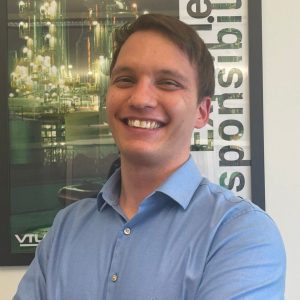
Dr. Filippo Dal Pastro
Process Engineer ‒ VTU Engineering, Sesto San Giovanni, Italy
VTU is an engineering society that designs plants, in particular for the pharmaceutical industry, from the conceptual design up to the validation of the plant itself. My role as process engineer in a company that designs plants (particularly for the pharmaceutical industry) is broad and highly depends on the project and on the project phase. It can vary from the design of different equipment (tanks, exchangers, complex packages) to the development of P&IDs. As a process engineer, your work is the starting point for all the other disciplines involved in a plant design (electrical, mechanical, automation), so it is of paramount importance.
My CAPE-Lab experience gave me the mindset to meet customer demands, since they are always looking for intelligent solutions to improve the quality, performance and efficiency of their production processes and facilities. Being a process engineer with a CAPE-Lab background creates the perfect link between the automation department and the customer.
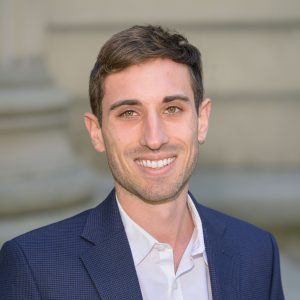
Dr. Francesco Destro
Postdoctoral Research Associate ‒ Massachusetts Institute of Technology, Dpt. of Chemical Engineering, Cambridge, MA, USA
As Postdoctoral Research Associate at the Department of Chemical Engineering at the Massachusetts Institute of Technology (MIT), I am conducting research into process systems engineering and advanced biopharmaceutical manufacturing. Specifically, I am using the expertise acquired in CAPE to enhance the manufacturing process for genetic medicines. Several drugs from this class of therapeutics have been approved in recent years, with potential to treat severe diseases, including certain types of cancer and genetic disorders. However, most advanced biotherapeutics are manufactured through processes that present low efficiency and high costs, which can exceed 200.000 euros for certain gene therapies. The process systems engineering toolkit mastered by the CAPE-Lab is essential for addressing these challenges and making these cutting-edge therapies accessible to all patients in need.
Dr. Beatriz Felices Rando
Postdoctoral Research Associate ‒ Sargent Centre of Process Systems Engineering, Imperial College London, UK
I am currently working as a research associate at Imperial College London, where my research focuses on techno-economic analysis (TEA) and life cycle assessment (LCA) of biomanufacturing processes within the biopharmaceutical and food industries. During my PhD at the CAPE-Lab I gained experience in the cultivation, modelling and simulation of microalgae-based systems. My work involved applying model-based tools to support model identification and the design of experimental campaigns. This experience made me see the value of using mathematical models and digital tools to make industrial processes more efficient and sustainable, and it has motivated me to continue my career towards that direction.
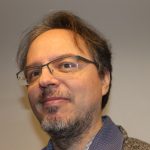
Dr. Federico Galvanin
Professor of Chemical Engineering, Department of Chemical Engineering, University College London (UK)
Federico Galvanin received the degree in Chemical Engineering in 2006 and the Ph.D. degree in 2010 at the University of Padova, both focused on the development and application of model-based design of experiments (MBDoE) techniques. After a post-doctoral activity in the CAPE-Lab focusing on the optimal design of clinical tests for the identification of physiological models, he has been working as a post-doc Research Associate at University College of London (UCL) since 2014. In September 2015 he started as a Lecturer at the UCL Department of Chemical Engineering, where he became Associate Professor in 2021 and full Professor in 2024. His main areas of expertise are in the field of model identification including optimal design of experiments (theory and applications) for the development of chemical, biological and physiological models. At UCL he is leading the Galvanin System Identification Group (GSIG), where a systems-based approach is employed for the design of optimally informative experiments with the goal of identifying models with the minimum cost, time and effort in the experimentation. The GSIG research activity is related to i) the development of advanced model identification techniques (including MBDoE, a specific expertise pioneered in his experience at CAPE-Lab) and their application to chemical and physiological systems; ii) the development, integration and application of advanced model identification techniques to automated and autonomous systems; iii) the integration of machine learning and data-driven modelling in physics-based model identification frameworks.
Dr. Margherita Geremia
Process Modeling Engineer, F.I.S. Fabbrica Italiana Sintetici S.p.A., Italy
I currently work as Process Modeling Engineer at F.I.S. (Fabbrica Italiana Sintetci), where I focus on modeling activities to support product transfer and scale-up of spray drying processes. Specifically, my work involves the implementation of advanced thermodynamic and fluidynamic concepts to develop robust predictive models, with the final goal of guiding efficient and scalable design. During my experience at CAPE-Lab, I built a solid foundation in modeling techniques and gained confidence in exploiting mathematical tools to streamline process development and decision making, particularly for biopharmaceutical manufacturing. This experience sparked my interest in bringing theoretical knowledge into practice and motivated me to pursue a role in R&D where I could apply these skills within an industrial environment.
Dr. Sara Giarola
Marie Curie Postdoctoral Research Fellow ‒ Department of Management, Polytechnic of Milan, Italy; Honorary Research Fellow ‒ Department of Chemical Engineering, Imperial College London, UK
After my PhD in Chemical Engineering at the University of Padova, I joined the Chemical Engineering Department of Imperial College London. I later became a Marie Curie Postdoctoral Research Fellow at the Polytechnic of Milan. I am interested in different subjects, ranging from energy systems modelling, to supply chain optimisation, and to climate science. I remember with pleasure my time at the CapeLab, where I first studied optimisation and learned the skills of rigorous analytical modelling, I always use in my career for dealing with complex systems.
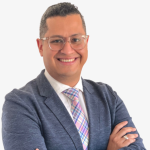
Dr. Ricardo Ortiz
Operations Manager & Local Equity Partner, PSE Group, Mexico City, Mexico
After I work at PQE Group, which is an ISO 9001 certified technology solutions and compliance consulting services company with global capabilities deliverable throughout the entire product quality life cycle for Medical/Pharmaceutical industries. As Operations Manager & Local Equity Partner, my primary responsibility is to make sure that everything operates as smoothly as possible every day. I do this mostly by putting the proper processes and practices in place throughout the company and making the most of them while satisfying client demands for cost-effectiveness. My time at CAPE-Lab was priceless; it gave me the ability to make decisions quickly and assertively, thinking out-box, multi-cultural awareness approach, and to take advantage of global collaboration opportunities. Undoubtedly, my professional accomplishments have been greatly aided by the abilities I developed and sharpened at CAPE-Lab. systems.
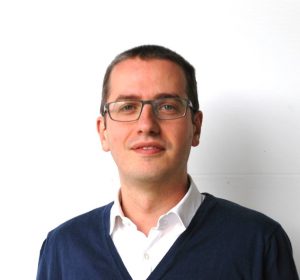
Dr. Matteo Ottavian
Head of Operations ‒ Suanfarma Italia, Rovereto, Italy
Suanfarma Italia is manufacturing APIs (Active Pharmaceutical Ingredients) via both classical fermentation and chemical synthesis. As Head of Operations, my main responsibility is assuring to our customers high quality products at affordable prices, which translates from a practical point of view into keeping the manufacturing processes well under control within its design space and constantly seeking for improvements. In addition, I am responsible for the introduction of the new products on site either from laboratory scale or from other production sites (the so-called process transfers): scale transfer projects are always a lot of fun when you studied Chemical Engineering!
I learnt at the CAPE-Lab the role that modelling and data plays in making sound and enduring decisions – in a rapidly changing environment with limited resources, such mindset really contribute in moving in the right direction in everyday work.
Dr. Chiara Piccolo
ESG Manager ‒ IBSA Group, Lugano, Switzerland
I currently work in Corporate Sustainability as an ESG Manager in the pharmaceutical industry. My foundation in environmental sustainability began during my Master’s thesis at CapeLab, focusing on biofuel production processes. This passion continued through my PhD, shaping my career ever since.
At CapeLab, I honed my skills in breaking down complex problems, managing and quantifying uncertainty, and making data-informed decisions. These experiences have been invaluable in my role, where the ability to influence decisions with data is key.
Dr. Alberto Saccardo
Postdoctoral Research Associate ‒ Sargent Centre of Process Systems Engineering, Imperial College London, UK
I am a Postdoctoral Research Associate at Imperial College London, conducting research into process systems engineering for the
biopharmaceutical and biotechnology industries. My work focuses on hybrid modeling, surrogate optimization, and model-based design of experiments.
At CAPE-Lab, I completed a PhD on model-based approaches for the optimisation of microalgae technology. The education and experience I gained at CAPE-Lab were pivotal in developing a solid skill set in mathematical modeling, enabling me to approach complex problems with innovative and creative solutions. The rigorous training and exposure to cutting-edge research methods at CAPE-Lab have been essential in shaping my career and enhancing my passion and curiosity for scientific research and process systems engineering.
Dr. Francesco Sartori
Data Scientist ‒ EssilorLuxottica, Business Process Innovation, Agordo, Italy
As a data scientist at EssilorLuxottica, I am involved in several projects aimed at extracting value from data through machine learning and computer vision techniques for improving the manufacturing process and supply chain efficiency. My experience in CAPE-Lab has equipped me with a profound understanding of advanced analytical techniques, statistical methodologies, and data pre-processing strategies, as well as essential soft skills that underpin effective collaboration, communication, and problem-solving.
Dr. Andrea Zamboni
Team Leader ‒ Biomethane Division, Pietro Fiorentini, Arcugnano, Italy
Now heading the Biomethane Team with the commitment to manage origination as well as technical and economic evaluation of biomethane projects in Italy, Europe and USA. Along my work experience (13 years) in the Biogas/Biomethane sector I have been covering different tasks: permitting and process design, construction management, feedstock supply management, operation management, sustainability and economics evaluation, business development, project financing management, M&A operations. And this is, basically, what I bring along from my experience at CAPELab: the capability to adapt to different context by applying the right methodology and problem solving approach to every different task I have been entrusted with.
Dr. Eliana Zamprogna
Founder and CEO ‒ Yumame Foods, Küsnacht, Switzerland
I am the Founder and CEO of Yumame Foods, a company that produces tasty, healthy, and highly sustainable food products using fungi and plant-based ingredients through fermentation. My role involves setting the vision and strategic direction of the company and supporting our team to ensure the successful production and profitable commercialization of our products for everyone.
My experience at CAPE-Lab was invaluable, providing entrepreneurial freedom to realize my research interests in the then-unexplored area of artificial neural networks, extensive support, and opportunities for international collaboration. I treasure very good memories of those times and lasting personal relationships. The skills and network I developed there have been very helpful in achieving significant milestones in my international career and in driving Yumame Foods forward.
